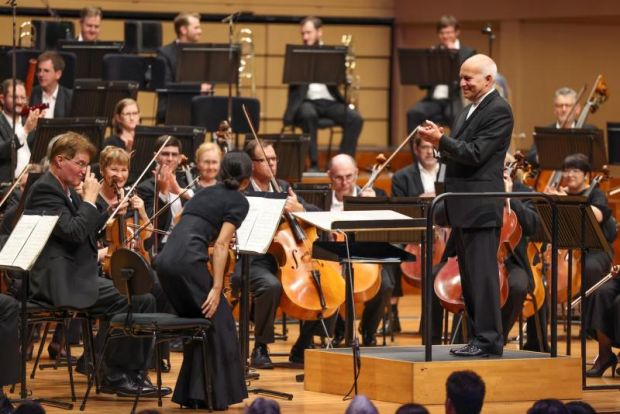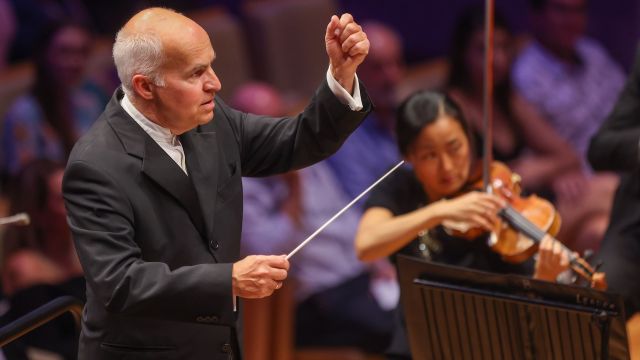Arabian Nights
Before the concert began, concertmaster Warwick Adeney did some QSO housekeeping by informing the audience that the conductor of the concert, Johannes Fritsch, had been appointed Principal Conductor and Artistic Advisor for the orchestra for the next three years. Fritzch had previously held the same position with the orchestra from 2008 – 2014.
Adeney also told us that in 2021 the role of concertmaster will be shared by himself and Natsuko Yoshimoto. He claimed that Yoshimoto was a superb musician which she immediately proved by exquisitely playing the solo violin role of Scheherazade, which had beautifully measured phrases and polished poise. This sweeping and melancholic melody holds the four sections of Rimsky-Korsokov’s symphonic ‘1001 Nights’ suite together. Korsokov began composing his orchestral piece as he was finishing work on fellow composer Alexander Borodin’s unfinished opera Prince Igor. It’s interesting to note that some of Prince Igor’s themes ended up being reworked for songs in the Arabian Nights Broadway musical Kismet. Orientalism was all the rage in the period and One Thousand and One Nights was the perfect vehicle. To stave off her execution by the Sultan who, convinced of the infidelity of all women, had vowed to slay each of his wives after their first night of marital bliss, Scheherazade slyly ends each night’s story with a cliffhanger, thereby ensuring the Sultan will let her live one more day to finish the tale. This he keeps on repeating until finally he repudiates his vow entirely. Opening with some ear-crashing chords on trombones and tuba, this overplayed work was in good hands with Fritsch commanding complete reverence from the orchestra who were in fine form. The carnival atmosphere of the Festival in Baghdad, was an orchestral delight.

Toshimoto was again to the fore as concertmaster in the concert’s wrap-up piece, Ravel’s La Valse. Composed just after the composer returned from the First World War, it was thought at the time that the work represented the breakdown of Viennese society following the ‘Great War’, but Ravel quickly repudiated that claim, insisting he thought of it as ‘kind of apotheosis of the Viennese Waltz.’ It is certainly that, and yesterday’s performance brought out the frenzied ‘dance of death’ that permeates the score. Yes, it had joie de vivre but it also had atonal and nihilistic overtones. QSO closed their Beethoven to Bolero with Ravel’s Arabian influenced Bolero, and Arabian Nights ended with this warped atonal masterpiece of Viennese society.
These two concerts, the first for 2021, went for clear, popular programming over the innovative. There’s nothing wrong with an old warhorse if it’s played well. These had a ton of brio and a showy brilliance. It was a afternoon of musical seduction and I was more than happy to be seduced.
Peter Pinne
Photographer: Peter Wallis
Subscribe to our E-Newsletter, buy our latest print edition or find a Performing Arts book at Book Nook.

